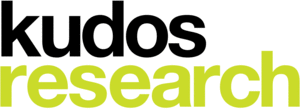The mention of a meeting with the procurement department is normally enough to make researchers reach for the garlic and crucifixes but, for those working in the advertising sector, improving relations with the money men is crucial as they start to take a greater interest in what is being spent on MR.
That’s the view of Brian Jacobs, who has spent 40 years working in advertising and media agencies, as well as a three-year spell at Millward Brown, and who was recently commissioned by ISBA to provide a guide for advertisers on how to commission market research.
In writing the guide, Jacobs embarked on a series of interviews with senior people – including procurement heads – at advertising firms and research agencies.
He said: “For the first time I can remember, senior management at client companies, and most particularly procurement heads, are saying: ‘Actually, why are we doing this research? What’s this for?’ And they’re not getting particularly good answers.”
The issues are twofold, says Jacobs, and relate to “transparency” and “engagement” – or the lack of them.
Take transparency first. Jacobs says some agencies are just unwilling to break down costs for their clients or potential clients.
“I’ve talked to research agencies about this and they all get very defensive and start saying: ‘Well, it’s no one’s business.’ Of course it’s someone’s business. If someone is commissioning you to do something and they’re paying you £100 to do it, it’s not unreasonable to know where that £100 is going.”
Jacobs says being open and upfront about costs could actually work to the agency’s advantage. He says: “If you, as the research agency, told the client: ‘Well, we could do a better job if you paid us £110, and that extra £10 we would spend over here to do this’ then that’s an opportunity for them.”
Sceptics might scoff at that point, but it’s hard to argue that research agencies shouldn’t do more to engage with a client company’s management and procurement teams – to talk in terms they understand and respond to, rather than stick to communicating solely with their clientside research counterparts. And what management and procurement really wants to know, says Jacobs, is how market research can help their business.
He recounts a conversation held during the course of his prep work for the ISBA booklet. Jacobs came across a client who explained how they received quarterly data from their research agency and fed it into a dashboard, which was then passed on to senior management.
Why, asked Jacobs? “We’ve long forgotten why we’re asking those questions and we just do it because we do it,” the client said.
This, Jacobs said, is exactly the sort of attitude that is making alarm bells ring in procurement departments, not necessarily because they want to sharpen the axe and cut spending, but because they want to know what benefits the spending is bringing in.
But the ROI question isn’t the only one procurement departments need answering. Many have limited experience of market research and require a deeper understanding of what it is before being able to judge its value fairly. One procurement official told Jacobs: “You know, if they don’t want to explain it to us, then guess what’s going to happen? It will become completely commoditised because we won’t understand it and, therefore, we will absolutely go after the lowest cost.”
Jacobs knows researchers are sensitive to the ‘c’ word. “Research agencies say buying research is not like buying a fleet of vans or something. Why? Because there’s a certain amount of creativity involved in market research – and there is, I absolutely accept that there is. And there’s a certain amount of interpretive thinking and strategic thinking – one or all of those things. But they have to explain this to procurement, to show them why it’s different to buying a fleet of vans, or else that’s how they’ll treat it because they don’t know any better.”
Jacobs offers one other bugbear arising from his research, and that’s the instances where agencies hide behind their own technology and offerings, rather than immersing themselves in a client’s business to bring value.
“I know this does tend to sound slightly inflammatory when I say it, but it is a matter of getting your head up out of the sand and stop worrying excessively about technique,” he says. “I think too many research agencies try and sell whatever the latest tool is they’ve got in the garage, and that might not be the best way of solving the client’s problem.”
Any final words of advice, we ask Jacobs? He offers us just one. “Engage,” he says. “It’s as simple as that.”







3 Comments
Anon
14 years ago
How do I obtain a copy of the guidebook?
Like Reply Report
Brian Jacobs
14 years ago
Thanks for your interest. The Guidebook is being published by ISBA with the active support of The MRS. The current plan is for a launch event in Q1 2011; we are currently working on details of this, but invitations will be issued by ISBA and The MRS. Copies will be available from then on.
Like Reply Report
KR
14 years ago
Necessary guide. It is so critical for the MR folks to work towards increasing awareness/educating users on the value of research (an not just the direct users, but also the key stakeholders).
Like Reply Report